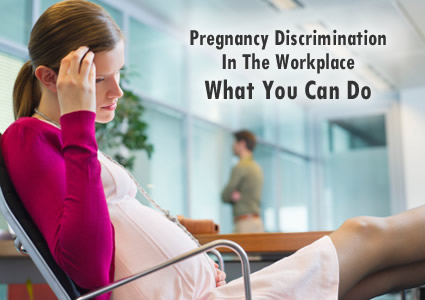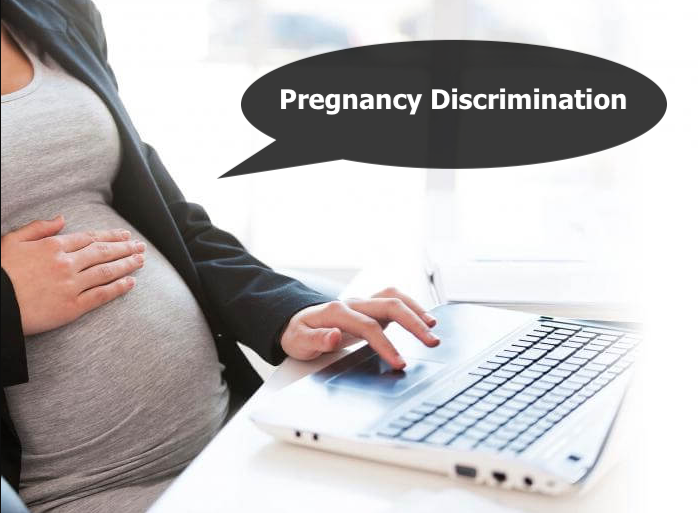Pregnancy Discrimination Attorney
Pregnancy Discrimination Attorney is a professional Attorney group in Tustin serving all Orange County area, Call or Request a Consultation Online Today with your #1 Employment Lawyers in California Stevens & McMillan! We are open Monday through Friday 9am to 5pm!
The Law Offices of Stevens & McMillan can help you immediately! Call your pregnancy discrimination attorney today! (800) 738-3353
It can be quite stressful to work while being pregnant and women do sometimes have to face discrimination at the workplace, so consult a pregnancy discrimination attorney today. But the Pregnancy Discrimination Act (PDA) very effectively protects rights of millions of working women in the U.S who may become pregnant at some time or the other.
The Rights
The PDA prohibits all kinds of discrimination in every aspect of employment. This includes hiring, firing, pay, promotion & other employment benefits. Get a pregnancy discrimination attorney if any of the rights listed below were violated:
• The Act prohibits the policies that limit/prevent women from doing any jobs only because they are fertile/ pregnant and forbids the policies that have an impact on women if they are pregnant/ are able to become pregnant.
• The PDA covers only the workplaces that have 15/more employees.
• If the person works for an organization with less than 15 employees, she should check with her regional Department of Labor Women’s Bureau office and check if the state has any agency that can assist her
• The woman cannot be fired for actually filing a complaint against her employer if he/she has violated the PDA
• The person cannot be bypassed for any promotion because she is pregnant
• If the employee takes pregnancy/ maternity leave, the employer has to hold open that person’s job in the same manner that a position may be left open for any employee who has gone on leave due to sickness or disability
• The employee is not required to tell current or potential employers that she is pregnant. A potential employer cannot refuse to employ a woman because she is pregnant as long as she is able to perform all the functions and duties associated with the job. The person cannot be asked if she is pregnant or if she plans on having children
Filing in Time
So, if a woman feels that her employer has discriminated against her because of her pregnancy or any pregnancy-related condition, she has the right to file a pregnancy discrimination charge with the EEOC and to get a pregnancy discrimination attorney. It is important not to delay filing the charge, so get a pregnancy discrimination attorney as soon as possible. In most cases, the filing has to take place within 180 days of discriminatory action, if the plaintiff’s legal rights have to be preserved.
These charges can be filed with a pregnancy discrimination attorney even if the person does not work for that particular employee any longer. If legal action has to be taken it is important for the employee to make note of the date, time & place of that incident, as soon as possible.
Pregnancy discrimination may also include unequal pay for the exact same job. The “gender wage gap” is something we often hear about, but the pregnancy wage gap may be even more important. A 2014 analysis by a socioologist at the University of Massachusetts Amherst found that each child cuts 4 percent of a woman’s hourly wage. Researchers at the Census Bureau recently looked into the wages of American spouses. The pay gap between the male and female workforce was only marginally larger than that of the couple who had their first child two years earlier. The pay gap was nearly doubled by the time the children were 1 years old.
Researchers suggested that while maternity leave, dropping out from the workforce and working less during motherhood may have contributed to the wage gap. However, this does not account for all of it. Researchers found that there is an unfair bias among employers towards pregnant workers. Pregnancy Discrimination Act provides mothers with a crucial legal avenue to combat this harmful bias.
The Law Offices of Stevens & McMillan can help you immediately! Call your pregnancy discrimination attorney today! (800) 738-3353
Call NOW toll free at (800) 738-3353 for a FREE CONSULTATION with NO RECOVERY – NO FEE (No Up-front Costs, Fees or Charges) if you feel like your rights may have been violated. Contact via email
Toll-Free (800) 738-3353
Monday – Friday 9:00am to 5:00pm
What is pregnancy discrimination law?
The 1978 Pregnancy Discrimination Act (Pub.L. 95-555 amended the Civil Rights Act of 1964 by the Pregnancy Discrimination Act of 1978 (Pub.L. Employers could discriminate against pregnant workers without consequences before this Act was passed. Women who cannot lift heavy objects while pregnant could be fired from physically demanding jobs. Now, an employer can fire an employee if she is temporarily unable or unable to do her job because of pregnancy. This includes providing light duty, modified tasks, disability leave, leave without pay, and alternative assignments. The Pregnancy Discrimination Act was a landmark in women’s rights, making it possible for more mothers to work in the workplace.
Recent news stories highlight how this law protects expectant moms across the country. Pregnancy discrimination is possible at any job, from Walmart to Wall Street. A recent investigation by the New York Times ( NYT ) revealed that pregnant mothers working in physically demanding jobs had miscarried when their employers refused to accommodate them. Employers ignored the doctor’s notes of their employees, which indicated that accommodations were needed to protect their health. Three of the four employees at XPO Logistics warehouses had doctor’s notes. They were all miscarriage survivors. These women are protected by the Pregnancy Discrimination Act, which allows them to sue their employers for damages. A woman shouldn’t have to choose between her unborn baby or her job. This act should be enforced to ensure that this terrible decision is not made by any mother.
Pregnancy discrimination can also affect women at work in other ways. Expectant mothers may face a new kind of glass ceiling, the “maternal walls”. This is when a woman gets pregnant and is then unfairly discriminated against at her job. Her salary or promotion may be denied, and she may not get a bonus or a promotion. Joan C. Williams, a University of California Hastings College of Law professor who has previously testified to pregnancy discrimination, said that “Some women hit a maternal wall long before there is a glass ceiling.” “There have been 20 years worth of laboratory studies showing that bias exists, and that once it is triggered, it can be very strong.”
The Pregnancy Discrimination Act provides legal protections to expectant mothers in order to ensure their career progression. This workplace problem is also highlighted in a New York Times report ( NYT). Rachel Mountis, for her outstanding sales performance at Merck (a pharmaceutical company), when she became pregnant, won numerous awards. Three weeks before giving birth, she was fired from Merck. Stephanie Hicks was a mother at work and sued Tuscaloosa Alabama for discrimination in pregnancy ( Hicks. City of Tuscaloosa). Ms. Hicks was nursing her baby at the time. Her doctor informed her that her bulletproof vest could have caused a breast infection. Pregnancy Discrimination Act protects mothers in such situations.
The Pregnancy Discrimination Act provides legal protection to mothers so that they can achieve their full potential at work. Many mothers do just that. Serena Williams, for example, competed at the 2017 Australian Open while she was pregnant. She won the tournament seven years in succession, and she competed. She continued to pursue her professional goals despite her pregnancy. Serena’s story shows how resilient pregnant mothers can remain and how they can still be at the top of their professions. Another example of a highly-performing working mother is Susan Wojcicki (CEO of Youtube). While being the mother to five children, she also runs one of the largest media companies in the country. Susan has made it clear that she is committed to making time for her family, despite her hectic work schedule. She also shows how women can be successful in their careers if they aren’t discriminated against at work.
The Pregnancy Discrimination Act of 1979 protects the career success and health of working mothers, as shown by the news stories. Mothers who are granted legal protections at work can make valuable contributions to their industry and reach the top of their careers. Motherhood is one of the most difficult jobs in the world. The Pregnancy Discrimination Act will make it easier for mothers to pursue professional careers. A law like this is a blessing for a woman who wants to have children. I don’t want to have to decide between having children and a career. Pregnancy Discrimination Act provides me protections at work so I can pursue my dream of having children and my goal to be a successful lawyer.
An employment lawyer can provide more information about discrimination at work.
This Post Has 2 Comments
Leave a Reply
You must be logged in to post a comment.





Pingback: 4 Things to Know about Pregnancy Discrimination Law in California - No Cost Upfront
Pingback: 4 Things You Should Know About Pregnancy and Employment Laws